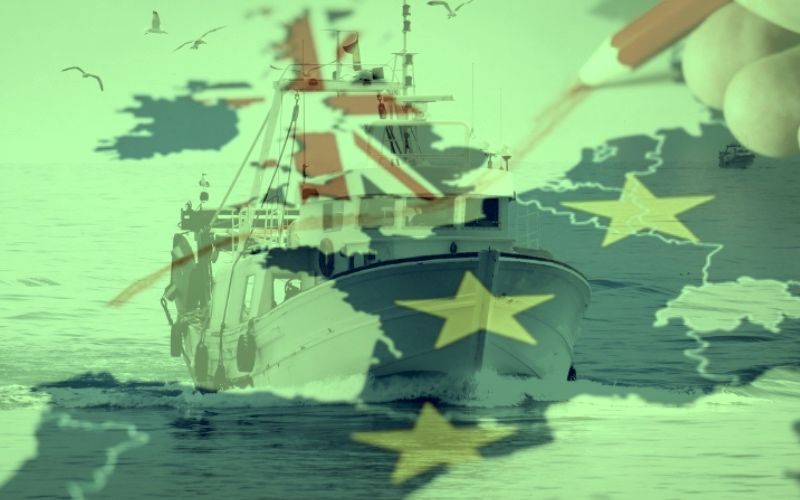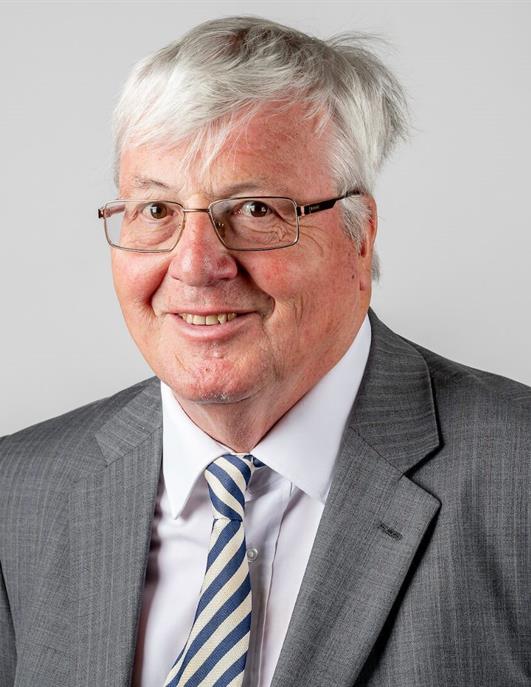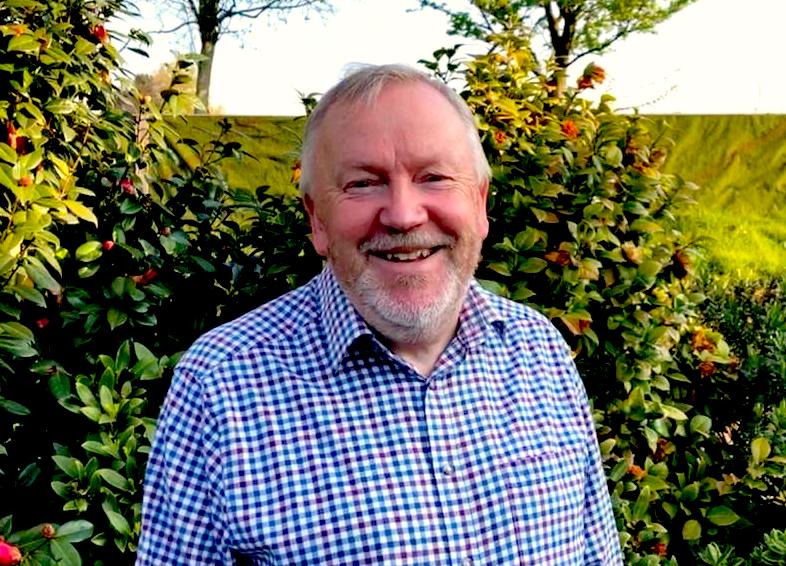


It's emerged Jersey’s government is having to walk an extremely fine line to try and protect declining fish stocks while not upsetting relations with the French or European Commission.
In a statement to the States Assembly yesterday following last week’s fishing protests, Environment Minister Deputy John Young said the island's new licensing regime for controlling fishing in its waters was needed to achieve “a long-term sustainable fishery for all fishermen”.
While Jersey’s Government has offered to postpone the implementation of individual limits on days at sea and on gear until 1 July for licenced vessels, and allowed them more time to provide further evidence of their fishing record, the Environment Minister was keen to stress that some conditions on what fishers can and can't do will still be necessary.

Pictured: Deputy John Young, the Environment Minister.
“The licensing conditions applied to both EU and our boats will, in time, provide the framework to ensure that we do not exceed maximum sustainable fishing effort, a principle fundamental to the TECA and other International Agreements,” he said.
“In recent years, several of our fish stocks have been declining due to over-fishing and we need to ensure the effort is reduced. If we are successful, this will ensure that both ourselves and the EU are able to continue to enjoy this valuable natural resource in perpetuity. Both our fishermen and those of the EU have this responsibility.”
He then reasserted his view following questions from States Members.
“Our fishing has been unsustainable because of overfishing in the past and I’ve been clear about that and there will need to be conservation measures,” he said.
“What we’ve got is a framework of licensing that creates a fair way of doing it, so both ourselves and the EU nations can have sustainable fishing. There’s got to be a period of adjustment for everybody and we are finding our way through that process.”

Pictured: Deputy Young said the conditions would provide the framework to ensure that we do not exceed maximum sustainable fishing effort.
He explained that the conditions added to the licences for larger vessels would bring the EU fishermen into line with the conditions for local fishermen.
Deputy Steve Ahier suggested that the study on bream that is currently underway could have been delayed to avoid causing issues while “delicate negotiations” were taking place, which the Minister agreed with.
He however said the study had been prompted by complaints from local fishermen about the level of bream stocks, which he said were “very valuable” and “in particularly sensitive areas of our marine environment."
“There have been complaints about dredging through those areas that have caused damage and so, a proposal was put to the French, last year I believe, to have those areas closed for a short period to allow their study to take place,” Deputy Young said. “It could have been deferred but the problem is this very time, April and May is the time that bream spawn and so therefore the conservation argument overwhelmed.
“They are quite small areas and they won’t expect many boats at all but obviously it is open to stop it, at the moment I haven’t done so.”
The External Relations Minister, Senator Ian Gorst, also answered questions about the fishing dispute later on in the sitting.
He said that under the agreement, Jersey had to issue licences to French fishermen who’ve got historic rights in local waters through the preceding three years.

Pictured: Senator Ian Gorst, the External Relations Minister.
“The challenge we have had is the data and the evidence and we are going to need to work with the EU and now bi-laterally with the French as well,” he said.
“We are going to need to be pragmatic, we are going to need to think about the spirit of the agreement as well as the letter of the agreement because if we do not respect those historic rights as the trade deal says we should then this problem won’t be solved, the deputy is right to raise this as an issue.”
Deputy Montfort Tadier questioned how providing fishing licences to fishermen who have enjoyed historical rights – which Senator Gorst said are in perpetuity and transferrable – was compatible with sustainability way, as some of the fishermen being granted licences might have been doing so in a way that harms the marine environment.
Senator Gorst this was “a juxtaposition of respecting historic rights”, adding that the trade agreement also “prescribed” for Jersey waters to be managed “in a sustainable manner for the future”.
“Any sustainable condition that might be brought forward in the future, which I know the Minister and the Assistant Minister, are absolutely committed to, must be based on good scientific data and introduce in a non-discriminatory manner so that is the point,” Senator Gorst said. “Jersey can manage its own waters for the first time and it can manage them in a non-discriminatory, sustainable way based on the best scientific evidence.”
However, Chris Perkins, who chairs ‘Action for Wildlife’ - a group which has been campaigning to turn part of Jersey’s territorial waters into a 'marine conservation park', supported by Deputy Chief Minister Senator Lyndon Farnham - said the conditions are not good “from a conservation point of view”.
He said it would be better to restrict the size of vessels of the gear they used rather than the number of days they can carry out “destructive fishing practices”.

Pictured: Chris Perkins chairs ‘Action for Wildlife'.
“The Jersey fleet is fairly sustainable because their vessels are quite small and on the whole, they tend to fish with pots and things like that whereas we know that a number of the French vessels when they are dredging, they are dredging with 16 or 17 dredgers at the time, which is incredibly destructive,” he said.
“They also carry out ‘pair trawling’. They sail a kilometre apart with a kilometre of net strung between the two ships and basically whatever happens to be in the sea between the two ships ends up in their nets and that’s not sustainable and obviously they will kill a large number of marine mammals in the process because dolphins get caught and they drown in the net. That is happening in our waters as well,
Mr Perkins believes the Government has missed an opportunity to “licence for sustainable fishing practices or at least something that is not as destructive”.
“I think what’s been missed in this whole debate is, it’s like ‘they are our fish’ and somebody else says ‘no they are our fish’ well actually they are nobody’s fish,” he said.
“It seems to have been lost a little bit in the arguments between Jersey, the Uk and France about rights etc… the conservation message seems to have become somewhat lost.
"They talk about fish stocks, we have livestock on land they are grown and bred specifically for our use and they wouldn’t be on farms otherwise. Fish in the sea aren’t stock, they haven’t been put there and they are not farmed, they just happened to be animals in the sea. unfortunately, we get this awful term of bycatch as well which means it’s not just the fish that people are after it’s the other marine mammals that get caught in the nets in the process."

Pictured: Mr Perkins believes the Government has missed an opportunity to “licence for sustainable fishing practices or at least something that is not as destructive”.
While he acknowledged the Government is in a difficult position and possibly “hamstrung” by the rules of the agreement, Mr Perkins believes a marine conservation park could be the solution to the issue as it would protect at least 30% of the local waters from unsustainable fishing practices.
“It’s not the numbers of vessels and I don’t think it’s anything to do with the peculiar quantity, it’s the size and power of some of the industrial fishing that appears to be taking place,” he said.
“I’m sure it’s very difficult for them. It would have been good if those conditions could have been centred around not necessarily the number of days in the water but the type of vessels that are being used, from a marine conservation point of view I am sure that would have been the better way of doing it.
“But they may be hamstrung by the various Brexit rules they signed up to so the idea and principle behind a marine conservation park may actually be one that will work because restrictions in a marine conservation park would apply to people who fish no matter which country they are from. Maybe that’s something they could pursue in the short term and then try and do something about the less sustainable practices within the rest of that territorial water perhaps in the long term.”
Express explored the problem of overfishing in Jersey in a recent podcast... 'Deforestation: Just add water'.
Subscribe to Bailiwick Podcasts on Spotify, Apple Podcasts, Deezer or Whooshkaa.
Comments
Comments on this story express the views of the commentator only, not Bailiwick Publishing. We are unable to guarantee the accuracy of any of those comments.